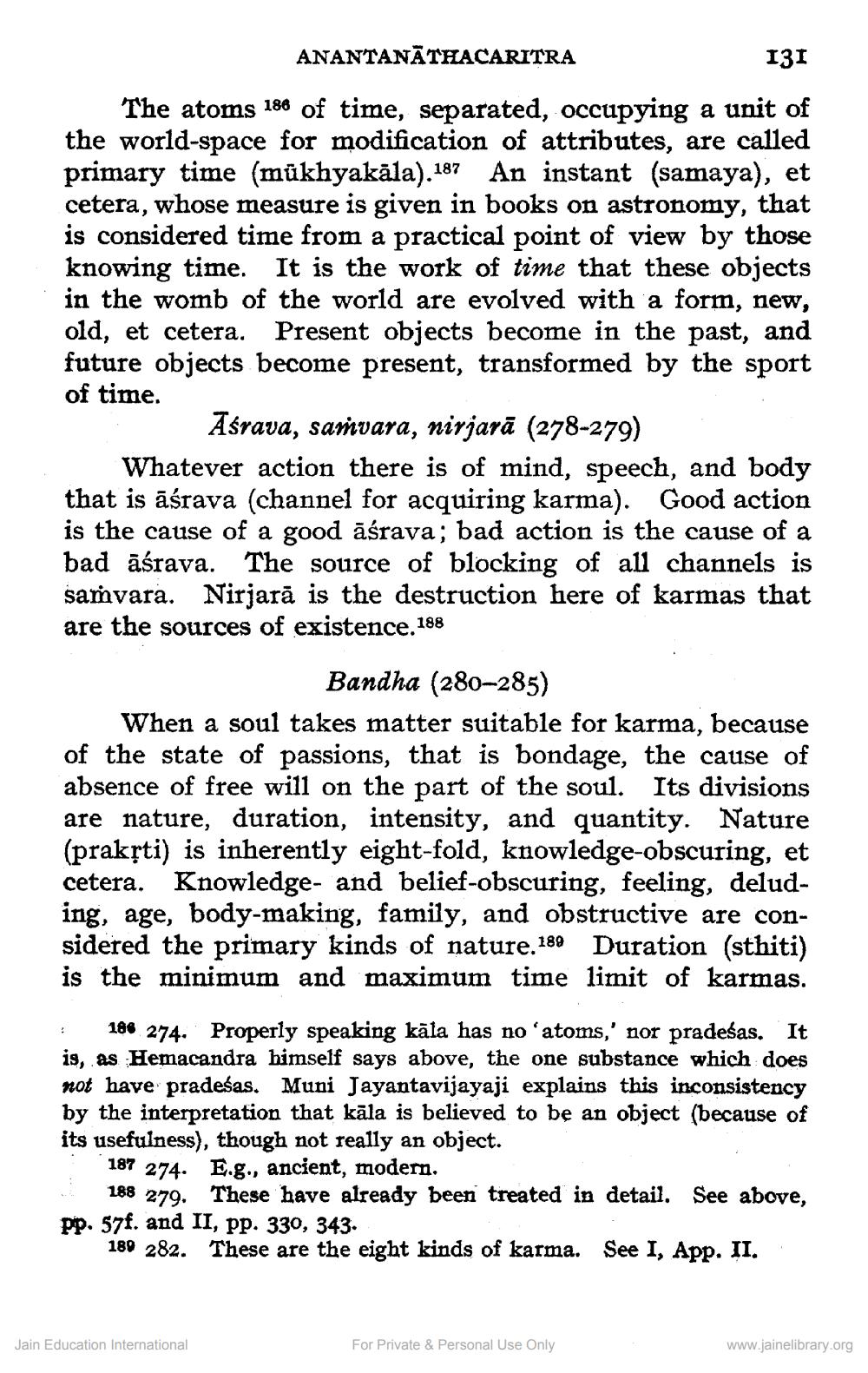________________
ANANTANATHACARITRA
131 The atoms 186 of time, separated, occupying a unit of the world-space for modification of attributes, are called primary time (mükhyakāla). 187 An instant (samaya), et cetera, whose measure is given in books on astronomy, that is considered time from a practical point of view by those knowing time. It is the work of time that these objects in the womb of the world are evolved with a form, new, old, et cetera. Present objects become in the past, and future objects become present, transformed by the sport of time.
Aśrava, samvara, nirjarā (278-279) Whatever action there is of mind, speech, and body that is āśrava (channel for acquiring karma). Good action is the cause of a good āśrava; bad action is the cause of a bad āśrava. The source of blocking of all channels is samvara. Nirjarā is the destruction here of karmas that are the sources of existence. 188
Bandha (280-285) When a soul takes matter suitable for karma, because of the state of passions, that is bondage, the cause of absence of free will on the part of the soul. Its divisions are nature, duration, intensity, and quantity. Nature (praksti) is inherently eight-fold, knowledge-obscuring, et cetera. Knowledge- and belief-obscuring, feeling, deluding, age, body-making, family, and obstructive are considered the primary kinds of nature. 189 Duration (sthiti) is the minimum and maximum time limit of karmas.
• 186 274. Properly speaking kāla has no atoms,' nor pradeśas. It is, as Hemacandra himself says above, the one substance which does not have pradeśas. Muni Jayantavijayaji explains this inconsistency by the interpretation that kāla is believed to be an object (because of its usefulness), though not really an object.
187 274. E.g., ancient, modern.
188 279. These have already been treated in detail. See above, pp. 57f. and II, pp. 330, 343.
189 282. These are the eight kinds of karma. See I, App. II.
Jain Education International
For Private & Personal Use Only
www.jainelibrary.org




